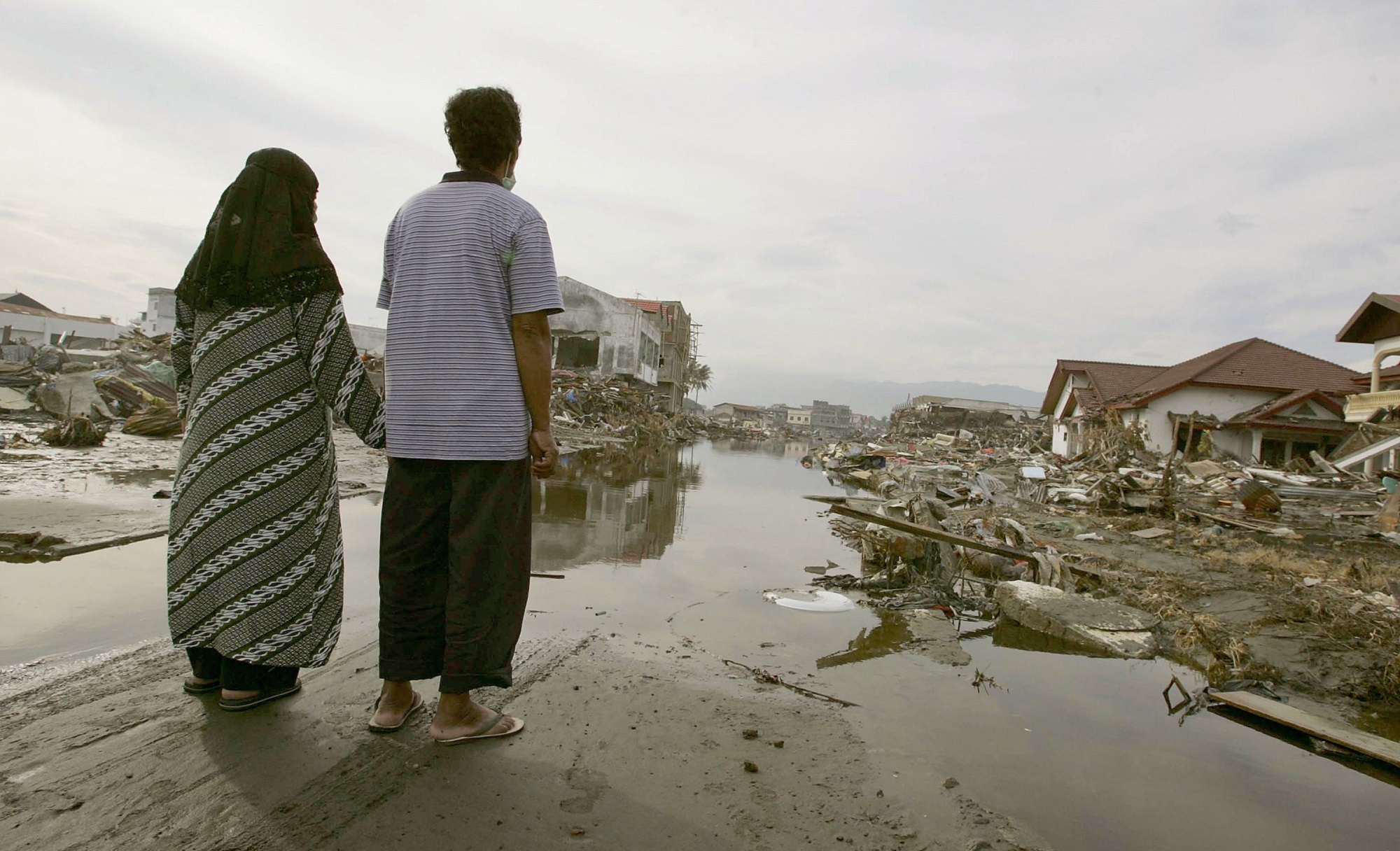

Our bodies are incredibly adept at reacting to stressors, fighting to keep our biological systems balanced whenever we encounter a new shock or threat. But this equilibrium act has limits, and new research suggests that traumatic weather events can set our hormones awry long term.
In December 2004, a colossal tsunami hit the coast of Indonesia, killing more than 230,000 people. The disaster devastated communities, and many of those who survived reported symptoms of post-traumatic stress. But the health effects extend far beyond those initial weeks, months, or even years. More than a decade later, the tsunami continues to have health consequences for survivors, according to new research published in the journal Proceedings of the National Academy of Sciences.
As part of a larger project that aims to survey the wave’s long-term effects, scientists joined collaborators in Indonesia in 2018 to study the primary stress hormone cortisol. By sampling the molecule from the hair of adults, the researchers found that women who survived the tsunami had lower cortisol levels compared to those who did not live through the disaster. This pattern, researchers say, indicates a type of hormonal “burnout” in response to repeated stressors. The findings emphasize how the trauma of natural disasters and extreme weather events—which will only increase in frequency with climate change—can have extended effects on our well-being far after initial events.
The authors of the new work homed in on a specific regulatory system, the hypothalamic-pituitary-adrenal (HPA) axis, which controls our levels of cortisol, among other hormones. Normally, cortisol rises as part of a healthy response to stressors, and lowers again when that stress has passed. But when faced with repeated high levels of stress, the HPA axis can experience “burnout,” which can lead to “longer term inability to mount the healthy response you want to react to your daily stressors,” says the study’s first author, Ralph Lawton, currently a doctoral student in health policy and economics at Harvard University. In other words, repeated high levels of stress can wear out your HPA axis, leaving it unable to produce adequate cortisol moving forward.
[Related: The biggest tool we have to fight climate anxiety is community]
To conduct this research, they collected hair from more than 600 individuals from communities badly affected by the 2004 tsunami, and quantified the cortisol located in the 1.2 inches of hair closest to the scalp. HPA axis burnout was seen most strongly in women who were exposed to the tsunami’s direct impacts—their hair cortisol levels were 30 percent lower than counterparts not similarly exposed. It’s not that there wasn’t an effect in men, Lawton clarifies, but in their analyses the effect in men wasn’t statistically significant, so they can’t say for sure.
“The consequences of large-scale disasters for stress have been established, but only over the short term,” says Duncan Thomas, an economist at Duke University and one of the leads of the new research. “But I’m not aware of a long term study that’s been able to show that they persist,” he says, “which is really the important contribution of our work.”
But the long arm of health effects brought on by the tsunami is not surprising to Arun Karlamangla, a professor of medicine at the University of California, Los Angeles, who was not involved in this new research but has collaborated with several of the authors. There is plenty of evidence, for example, that traumatic and stressful events in childhood can affect the function of the HPA axis and cortisol levels of individuals well into adulthood, twenty years or more later, he says.
[Related on PopSci+: Stress can literally kill you. Here’s how.]
Having cortisol levels that are too low is significant for health, says Lawton. It’s associated with lethargy, feeling less resilient and adaptable to daily stressors, and difficulty processing anxiety and stress. And these study participants who have lower cortisol levels in their hair also tended to report poorer perceptions of their own health, says Thomas. Karlamangla also notes that cortisol is also important for memory and learning.
Natural disasters and extreme weather events will only become more frequent with climate change, and it’s possible that many of the long term effects that arise will be similar to those from this tsunami. In that way this research could be broadly applicable to the “long term effects of climate change,” Thomas says. These findings reiterate the need for resources to be funneled toward interventions, such as cognitive behavioral therapy, he says. Those should be made accessible to local communities—in their own languages—in the aftermath of disaster, he says. In the future, intervening this way will not only improve immediate outcomes for people, “it’s probably going to pay dividends long term.”
